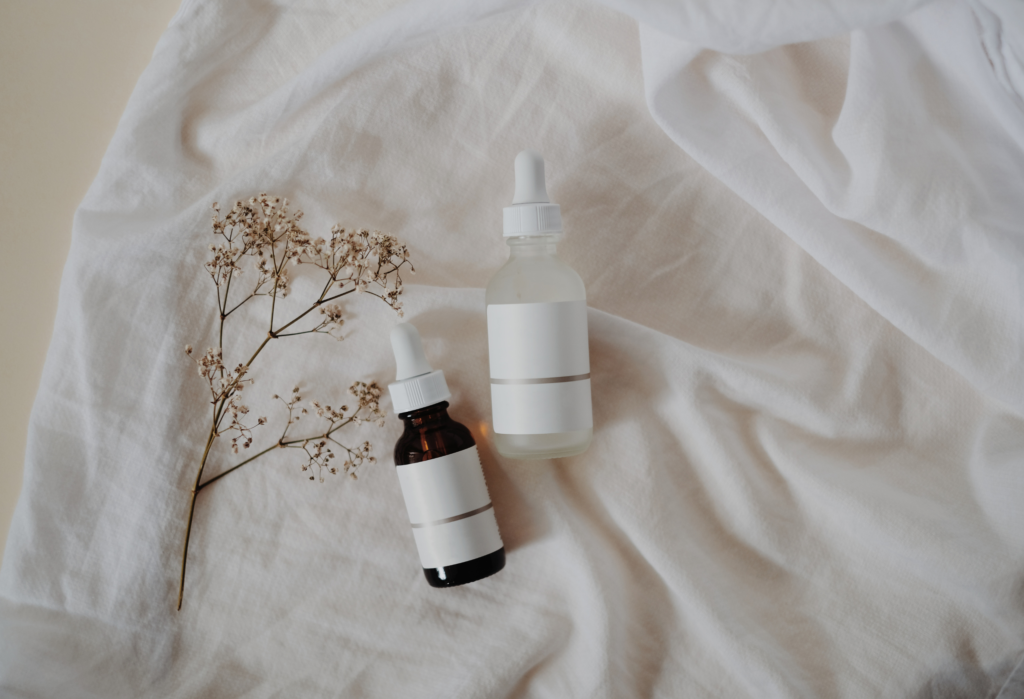
Introduction
Antioxidants are compounds that inhibit oxidation, a chemical reaction that can produce free radicals, which in turn can cause cell damage. In the realm of general health, antioxidants are crucial as they protect the body from harmful molecules that can lead to various diseases. Their role in skincare is equally important, helping to combat the visible signs of aging and improving skin health. This article delves into the importance of antioxidants in skincare, offering insights into their benefits, how they work, and how to effectively incorporate them into your daily routine.
Understanding Antioxidants
Definition and Types of Antioxidants
- Vitamins: Vitamin C and Vitamin E are potent antioxidants that help neutralize free radicals.
- Minerals: Selenium and Zinc play a vital role in the body’s antioxidant defense system.
- Enzymes: Superoxide Dismutase and Glutathione are naturally occurring enzymes that help combat oxidative stress.
- Other Compounds: Coenzyme Q10, Polyphenols, and Flavonoids also contribute significantly to the body’s defense against free radicals.
Antioxidants work by donating an electron to free radicals, thereby neutralizing them and preventing them from causing cellular damage.
The Science Behind Antioxidants in Skincare
Free radicals are unstable molecules that can damage cells, leading to premature aging and various skin issues. Oxidative stress occurs when there is an imbalance between free radicals and antioxidants in the body. Antioxidants neutralize free radicals, reducing oxidative stress and its harmful effects on the skin, such as aging, hyperpigmentation, and inflammation.
Benefits of Antioxidants for the Skin
- Anti-aging properties: Antioxidants can reduce the appearance of fine lines and wrinkles by neutralizing free radicals.
- Protection against UV damage: They help protect the skin from the harmful effects of UV radiation.
- Reduction of inflammation and redness: Antioxidants have anti-inflammatory properties that can soothe irritated skin.
- Improvement of skin texture and tone: They promote a more even skin tone and smoother texture.
- Acceleration of skin healing: Antioxidants aid in the repair and regeneration of skin cells.
- Prevention of hyperpigmentation: They help prevent and reduce the appearance of dark spots.
Common Antioxidants Used in Skincare
- Vitamin C: Known for its brightening effects, Vitamin C also boosts collagen production. Recommended product: TruSkin Vitamin C Serum.
- Vitamin E: Provides deep hydration and helps in skin repair. Recommended product: Neutrogena Hydro Boost Water Gel.
- Retinol (Vitamin A): Improves cell turnover and reduces wrinkles. Recommended product: RoC Retinol Correxion Deep Wrinkle Night Cream.
- Coenzyme Q10: Energizes skin cells and fights oxidative damage. Recommended product: NIVEA Q10 Plus Anti-Wrinkle Night Cream.
- Green Tea Extract: Rich in polyphenols, it provides powerful antioxidant protection. Recommended product: Innisfree Green Tea Seed Serum.
- Resveratrol: Offers anti-inflammatory and anti-aging benefits. Recommended product: The Ordinary Resveratrol 3% + Ferulic Acid 3%.
- Niacinamide (Vitamin B3): Reduces inflammation and improves skin elasticity. Recommended product: Paula’s Choice 10% Niacinamide Booster.
- Ferulic Acid: Enhances the stability and efficacy of other antioxidants. Recommended product: SkinCeuticals C E Ferulic.
Choosing the Right Antioxidant Products
When selecting antioxidant skincare products, consider your skin type, specific concerns, and product formulation. For example, serums are great for oily skin, while creams might be better for dry skin. Always read ingredient labels to ensure you’re getting potent and beneficial concentrations of antioxidants.
How to Use Antioxidants Effectively
For best results, apply antioxidant products in the morning to protect your skin from daily environmental damage. Layer them with other skincare products, such as moisturizers and sunscreens. Start with a lower concentration if you have sensitive skin and gradually increase usage to avoid irritation.
Myths and Misconceptions About Antioxidants
Some common myths include the belief that all antioxidants are created equal or that higher concentrations always mean better results. In reality, different antioxidants offer unique benefits, and their efficacy depends on formulation and stability. Scientific evidence supports the use of antioxidants, but it’s important to use them correctly to see results.
Real-Life Success Stories
Many individuals have experienced significant improvements in their skin health through the use of antioxidants. Dermatologists often recommend antioxidant-rich products for their anti-aging and protective benefits. Before-and-after comparisons highlight reductions in wrinkles, improved skin texture, and a more even skin tone.
DIY Antioxidant Skincare Recipes
For those interested in natural skincare, DIY recipes can be effective. For example, a simple Vitamin C serum can be made with L-ascorbic acid powder and distilled water. A green tea face mask using brewed green tea and honey can provide soothing antioxidant benefits. Always perform a patch test to ensure you don’t have an adverse reaction.
Future of Antioxidants in Skincare
Emerging research is continually discovering new antioxidants and innovative formulations. These advancements promise even more effective and targeted skincare solutions in the future.
Conclusion
Antioxidants play a vital role in maintaining healthy, youthful skin. By incorporating antioxidant-rich products into your daily routine, you can protect your skin from damage, reduce signs of aging, and improve overall skin health. Embrace the power of antioxidants and enjoy the benefits they bring to your skincare regimen.
References and Further Reading
For more information on antioxidants and skincare, consider the following resources:
- Scientific studies on antioxidants in dermatology
- Books on skincare and anti-aging
- Articles and reviews from reputable skincare websites
For recommended antioxidant skincare products, visit Amazon.
